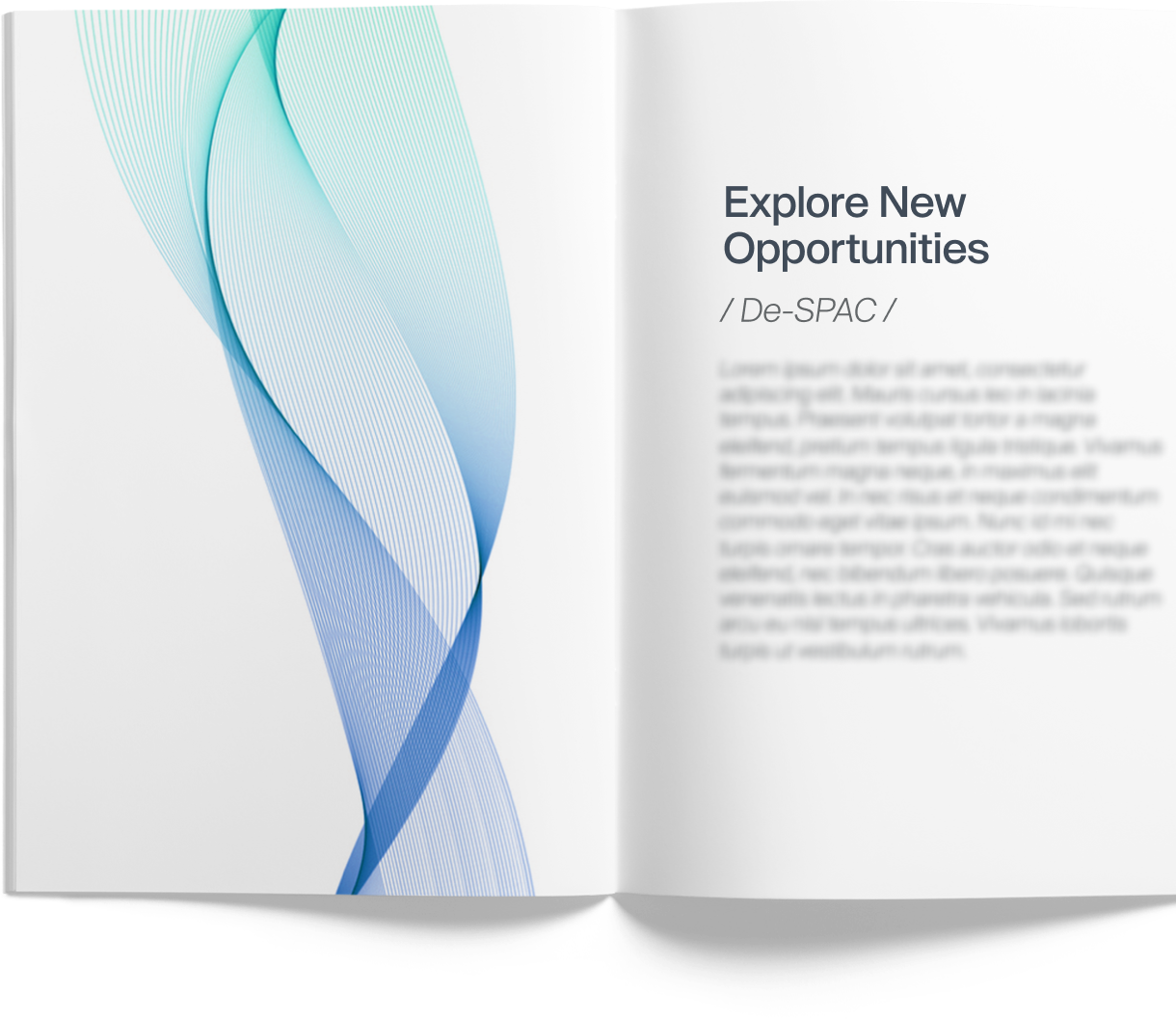Private Market Glossary
What is a de-SPAC transaction?
A de-SPAC transaction is what occurs when a special purpose acquisition company (SPAC) acquires a private company (though technically it could target a public company too). Essentially, this unwinds the SPAC, and the entity resulting from the acquisition/merger exists as a publicly traded company.
So, as the name somewhat implies, to de-SPAC means to go through a transaction where the public company no longer exists as a SPAC and the company resulting from the acquisition/merger continues trading publicly (as the SPAC did before the transaction).

A better understanding of the de-SPAC process
To understand the de-SPAC process, it’s important to first understand what a SPAC is. A SPAC is a publicly traded company that has no underlying business function other than existing to acquire a private company (or multiple companies in some cases). This acquisition is a de-SPAC transaction. By going through the de-SPAC process, the publicly traded SPAC absorbs the private company, which means that the previously private business can then be accessed by public market investors by trading shares of the entity resulting from the de-SPAC.
This de-SPAC process basically acts as a shortcut to going public. Instead of a private company filing for an initial public offering (IPO), it might get acquired by a SPAC. Since the SPAC is already public, but only exists to acquire a private company, the previously private company essentially becomes the publicly traded one.
The private company still has control in this process, as it doesn’t have to accept a SPAC’s acquisition offer, but it might be interested in a de-SPAC transaction as a way to go public.
What role does a de-SPAC play in the private market?
When private market companies get acquired through a de-SPAC transaction, that takes them from private to public. So, de-SPACs provide another liquidity option for private market companies.
For example, if a startup has raised several rounds of funding, early investors and employees might be looking for ways to cash out their shares. While there can be several liquidity options, a popular one is going public.
Yet the IPO process can be complex and lengthy, and although the de-SPAC process can be as well, some companies opt to go public by way of a de-SPAC. From there, shareholders of the startup could eventually sell company stock to public market investors once the de-SPAC process is complete.
SPACs boomed in 2021, but their popularity has since dropped. In 2022, regulatory scrutiny of SPACs increased, and market conditions changed to the point where de-SPACs have significantly fallen out of market favor. That said, these transactions still occur.
What are some examples of de-SPAC transactions?
Many notable private companies were acquired by SPACs, and thus they went public via de-SPAC transactions. Some examples include:
- Fast Radius: A manufacturing company specializing in 3D printing that became a publicly listed company on February 4, 2022 after completing a business combination with ECP Environmental Growth Opportunities Corp.
- Grab: A superapp, based in Southeast Asia providing transportation, logistics and financial services that became a publicly listed company on December 1, 2021 after completing a business combination with Altimeter Growth.
- Nextdoor: A neighborhood social network that became a publicly listed company on November 5, 2021 after completing a business combination with Khosla Ventures Acquisition II.
Not every de-SPAC transaction works out well in the long run, however. For example, after going public through a de-SPAC, Fast Radius ended up filing for bankruptcy and was sold to another company at the end of 2022. The challenges of being a public company exist regardless of the route a company takes to go public. Some of those challenges apply to all public companies, and some can be minimized or exacerbated depending on how the company went public (for instance, via IPO or via de-SPAC). And any number of these challenges, or other factors, can impact the company’s potential for success or failure as a public company.



